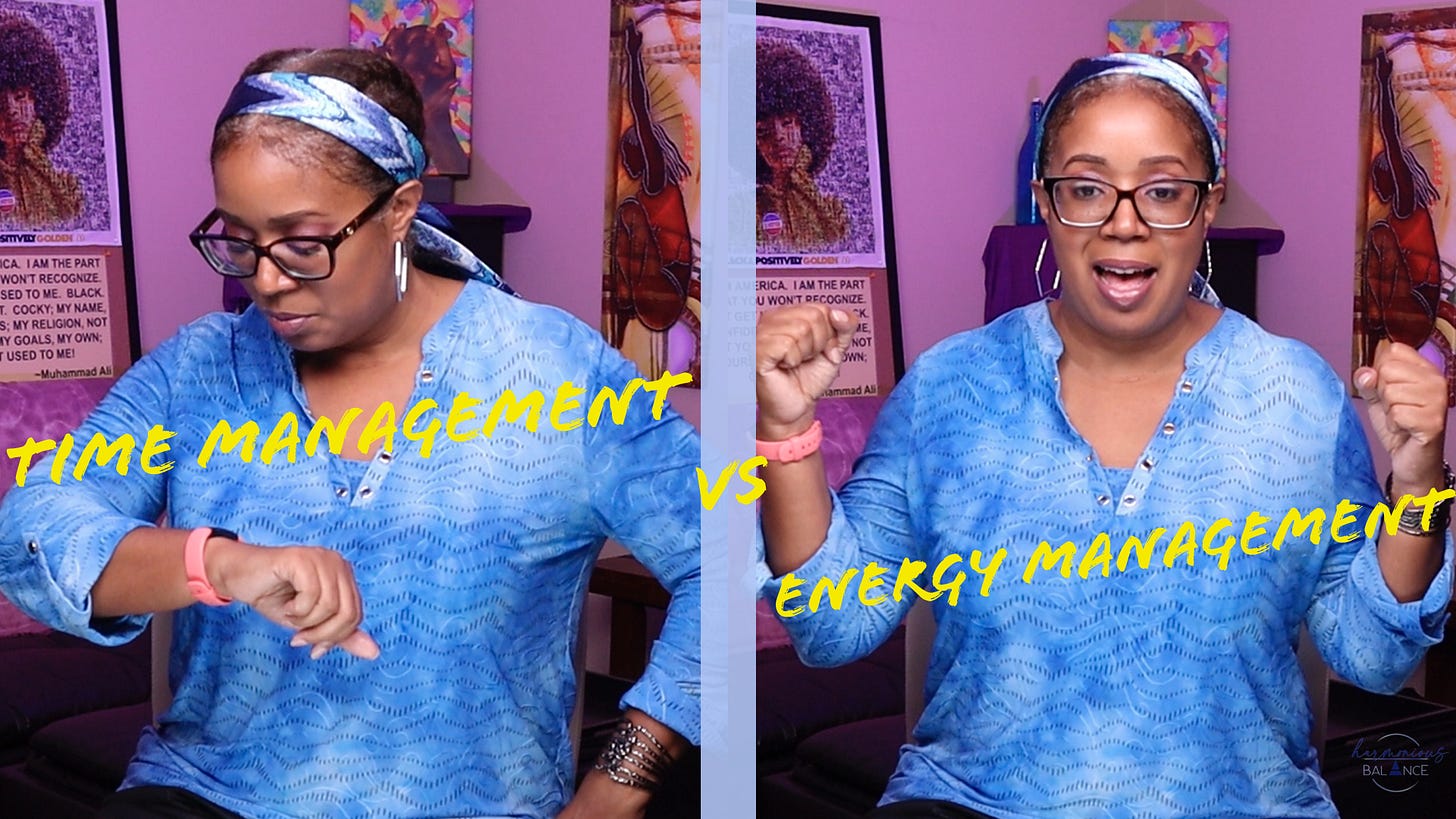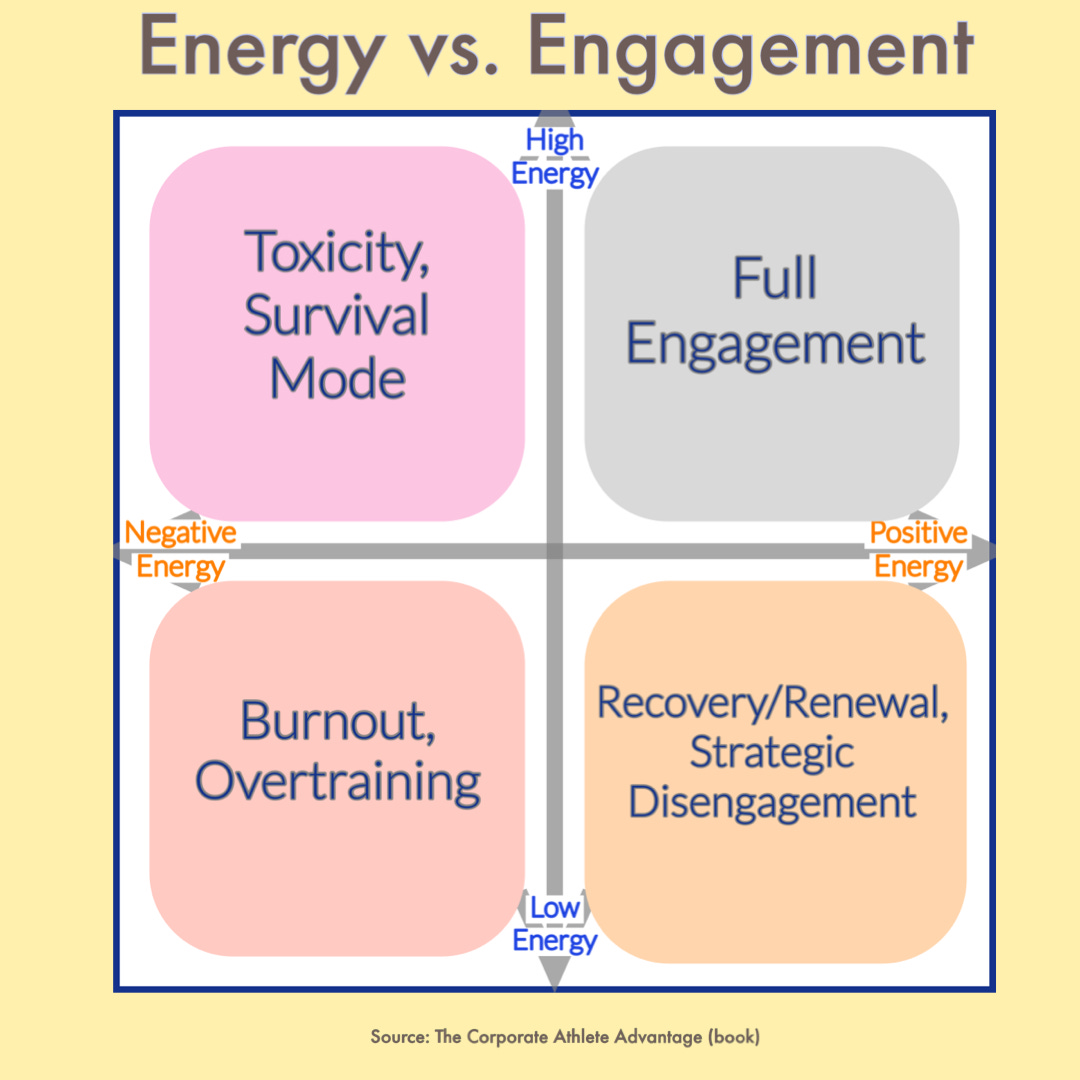Energy Management NOT Time Management is the Answer for Better Productivity
There never seems to be enough time in the day. We are always saying or we at least hear someone else say, Where did the time go? There's not enough hours in the day. If only I had more time! Time indeed is one of our most precious resources. It is very limited. It can't be replenished or expanded. We are very protective of it. How often do you say or hear someone say, I don't want to waste my time? (By the way, I've come to be irritated by the phrase "waste of time." But I'll have to discuss that at some other time).
It is completely understandable to not want to waste time. We have entirely too many demands on our time. It's been said that true wealth and freedom is when you have control over your own time. I tend to agree. Over the years, it's also been preached that if we had better time management then we would be more productive and be able to accomplish all that is on our plate. Many of us have been left to feel bad about ourselves because we just can't seem to manage our time effectively because we are forever in need of more time. This begs the question if time management were the solution, then why do we constantly need more time? Some might answer if we had less on our plates, then we probably wouldn't need more time. That's probably true but for now I want to discuss a concept that more aptly addresses productivity and engagement.
That concept is energy management. I tee'd up the idea of energy management when I introduced Harmonious Balance. I was making the argument of how balance is not a function of time but a function of energy. And that there are four energy valences that we need to balance in order to achieve the harmonious outcomes we are seeking. In this case, we are seeking better productivity and engagement. And I'm arguing that just like with balance, time should not be the focal point.
As I mentioned earlier, we view our time as a precious limited resource. Indeed it is. However we overlook another limited precious resource…our energy. Time can’t be expanded but we can expand our energy. In fact, time is only as good as it’s intersection with energy.
Energy in equals energy out. But I would argue that many people are operating from an energy deficit. Their energy expenditure is greater than their energy deposits. The idea of energy management can seem like common sense. But if it were commonly understood, we probably wouldn’t find ourselves depleted. Take a look at the energy pyramid below:
You see the four energy valences illustrated going from foundational with physical energy all the way up to significant with spiritual energy. Physical energy is derived from the union of glucose and oxygen and is the cornerstone of energy management. Emotional energy involves the range of feelings we experience. Mental energy is associated with cognitive processes such as thinking and decision making. Spiritual energy is associated with purpose, values, and beliefs. Depicted in the quadrants below, you can gather what each of the energy valences look like, how each are measured, and the greatest barrier to each.
Energy is also very contagious both positive and negative. Energy gets translated as engagement. When these four valences are maximized the greatest engagement occurs, as you see in the upper right quadrant below.
Of course, the remaining three quadrants explain what engagement looks like with the other intersections of high/low energy and positive/negative energy.
Another point worth noting is that it’s important to recognize who around you (including yourself) are energizers vs de-energizers. An important part of leadership is converting de-energizers into energizers. Are you starting to see how the idea of energy management applies to everything in both our personal and professional worlds??
I will close out with one final point. I mentioned earlier that we can not expand our time but we can expand our energy. One key way to do this is proper recovery. Our energy production is best maintained through intermittent intervals of being fully on and being full off. Without periodic recovery/renewal, strategic disengagement, our attempts to expend more energy will fail. We’ve all experienced hitting a wall after great energy expenditure only to experience diminishing returns. But later discover that after taking a break to recover that we could take another stab at whatever we were working on and go on to experience success or progress. Perhaps you didn’t know what to file that success under until now…you file it as an example of proper energy management.
Onward to Harmonious Balance,
-Johanna
Source for the above article and graphics: The Corporate Athlete Advantage
**For customized content requests,1:1 coaching and/or speaking inquiries, feel free to contact me.**






